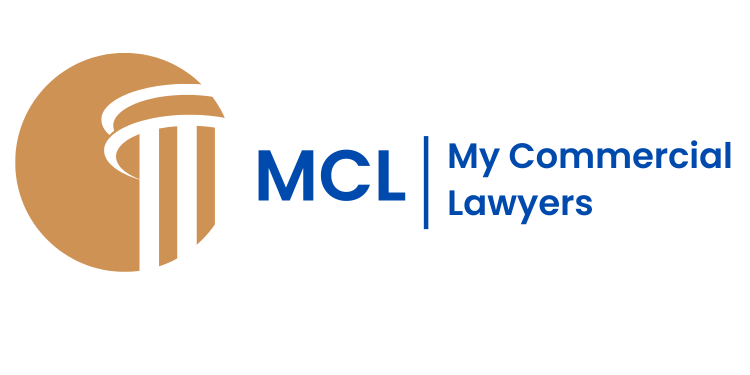Introduction to Adjudication: A Step-by-Step Guide
Adjudication is a statutory dispute resolution process widely used in the construction and commercial sectors. Governed by the Housing Grants, Construction and Regeneration Act 1996 (HGCRA), it allows parties to resolve disputes quickly, typically within 28 days. The process is especially beneficial for construction professionals, contractors, developers, and suppliers who need efficient resolutions to payment, contractual, or performance-related disputes.
At My Commercial Lawyers, we guide businesses through every stage of the adjudication process, ensuring legal compliance and maximising the chances of a favourable outcome.
Step 1: Notice of Adjudication
The adjudication process begins when the referring party issues a Notice of Adjudication to the responding party. This formal document outlines:
- The nature and details of the dispute
- The contract under which the dispute arises
- The redress sought by the referring party
- The name of the adjudicator (if already agreed upon)
This notice sets the process in motion, and the adjudicator must be appointed within seven days.
Best Practice:
- Clearly define the dispute and ensure the notice is well-drafted to avoid challenges.
- Seek legal advice to ensure compliance with statutory and contractual requirements.
Step 2: Appointment of an Adjudicator
The adjudicator can be chosen in one of three ways:
Pre-agreed within the contract – Many construction contracts specify a preferred adjudicator or appointing body.
Agreement between parties – If not pre-agreed, both parties can jointly select an adjudicator.
Appointment by a nominating body – If no agreement is reached, the referring party can request an adjudicator from an accredited organisation such as:
Royal Institution of Chartered Surveyors (RICS)
Chartered Institute of Arbitrators (CIArb)
Technology and Construction Solicitors’ Association (TeCSA)
Once appointed, the adjudicator has jurisdiction to proceed with the dispute resolution.
Best Practice:
- Choose an adjudicator with expertise relevant to the dispute.
- Ensure the adjudicator’s appointment is formally confirmed to avoid jurisdictional challenges.
Step 3: Referral Notice
Within seven days of issuing the Notice of Adjudication, the referring party must submit a Referral Notice, which sets out:
- The full details of the claim
- Supporting documents and evidence
- Legal arguments and relevant contractual clauses
- Witness statements, if applicable
This document is the foundation of the adjudication and must be prepared meticulously to strengthen the case.
Best Practice:
- Ensure all arguments and evidence are well-organised and legally sound.
- Use expert reports if required to support technical claims.
Step 4: The Response from the Opposing Party
The responding party typically has seven days to submit a defence. The response may include:
- Counterclaims or alternative legal arguments
- Evidence disputing the referring party’s claims
- Requests for additional time (subject to the adjudicator’s approval)
If necessary, the adjudicator may allow further submissions, but the process remains strict in adhering to the statutory timeframe.
Best Practice:
- Address each point raised in the Referral Notice comprehensively.
- Provide strong evidence and expert testimony if necessary.
Step 5: The Adjudicator’s Decision
The adjudicator reviews the evidence and issues a decision within 28 days, unless an extension is granted by both parties. The decision is binding and enforceable unless overturned by litigation or arbitration at a later stage.
Common outcomes include:
- Payment orders
- Declarations on contractual rights and obligations
- Determinations on liability for defects or delays
Best Practice:
- Ensure all arguments are clearly presented to the adjudicator.
- Be prepared to comply with the decision or escalate the matter if necessary.
Step 6: Enforcing the Adjudicator’s Decision
If the losing party refuses to comply, the decision can be enforced through the Technology and Construction Court (TCC). Recent case law confirms that courts will uphold adjudication decisions unless there is a jurisdictional or procedural issue.
Best Practice:
- Act quickly if enforcement is required.
- Seek legal advice to issue enforcement proceedings efficiently.
Advantages of Adjudication Over Litigation
- Speed – Disputes are resolved within 28 days.
- Cost-Effectiveness – Lower legal fees compared to court proceedings.
- Flexibility – The process is adaptable to different types of disputes.
- Binding but not Final – Parties retain the right to litigate or arbitrate if dissatisfied.
Why Choose My Commercial Lawyers for Adjudication?
At My Commercial Lawyers, we specialise in handling adjudication cases from start to finish. Our expert solicitors provide tailored legal support, ensuring compliance with procedural rules and maximising the chances of success.
Experienced in Construction and Commercial Adjudication
Proven Track Record of Successful Dispute Resolutions
London and Nationwide Representation
Cost-Effective and Strategic Legal Advice
